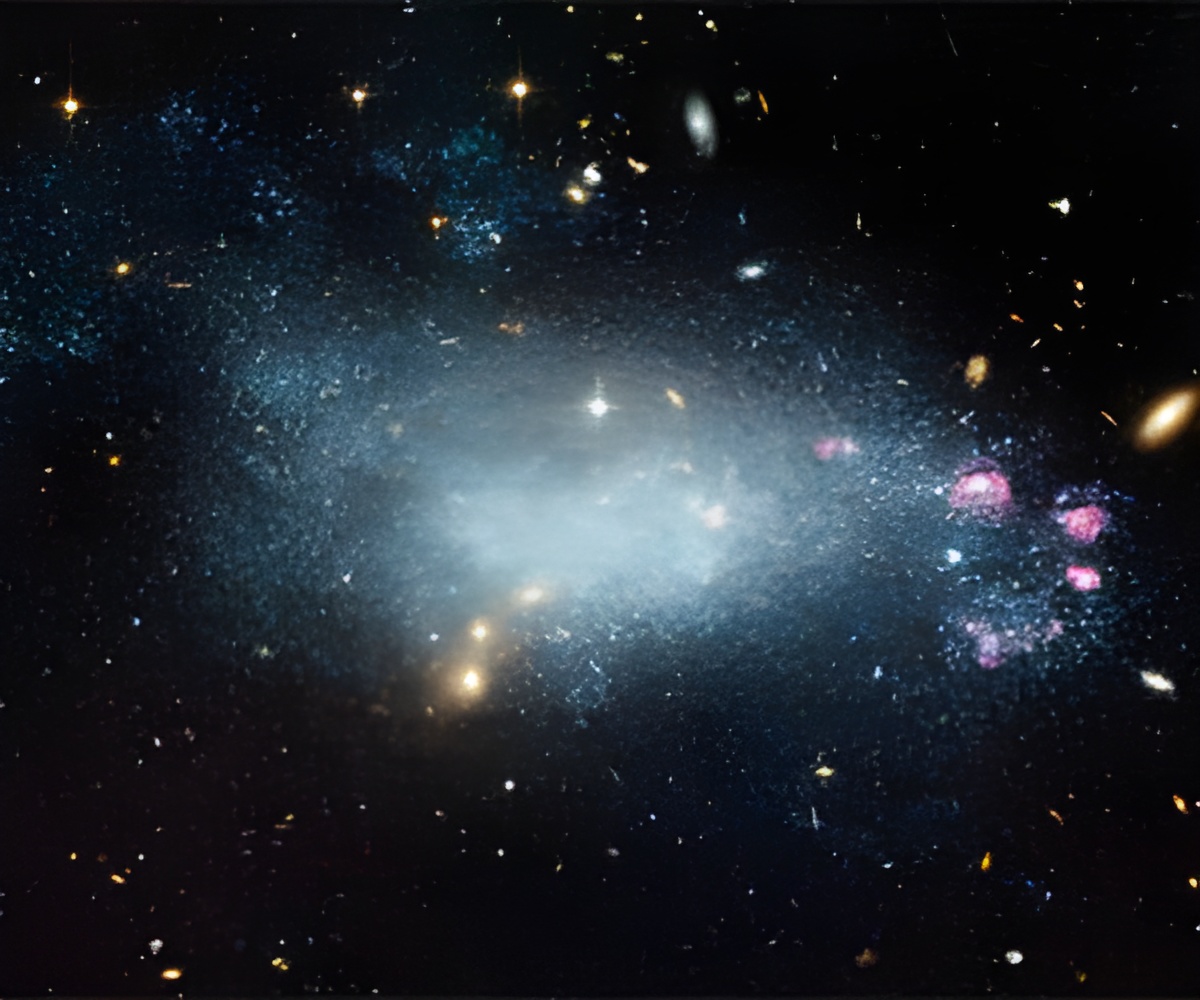
Lead author Peter A. Milne said, "We found that the differences are not random, but lead to separating Ia supernovae into two groups, where the group that is in the minority near them are in the majority at large distances and thus when the universe was younger. The discovery casts new light on the currently accepted view of the universe expanding at a faster and faster rate, pulled apart by a poorly understood force called dark energy. The Nobel laureates discovered independently that many supernovae appeared fainter than predicted because they had moved farther away from Earth than they should have done if the universe expanded at the same rate, which indicated that the rate at which stars and galaxies move away from each other is increasing; in other words, something has been pushing the universe apart faster and faster."
The authors concluded that some of the reported acceleration of the universe can be explained by color differences between the two groups of supernovae, leaving less acceleration than was initially reported. They also assumed that this would, in turn, require less dark energy than currently thought of.
The study has been published in the Astrophysical Journal.
Source-Medindia








